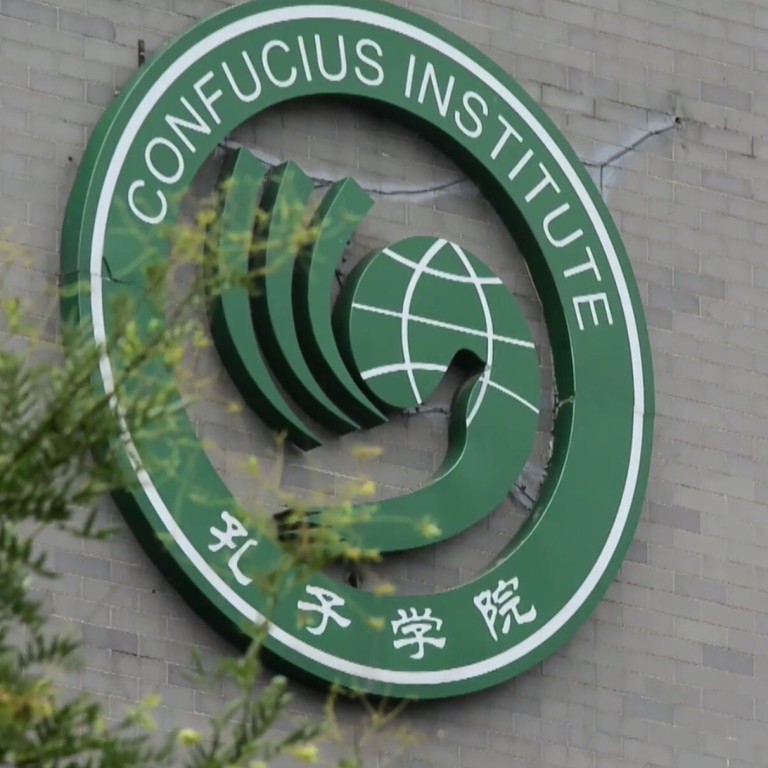
China-US relations: White House denies backtracking on Confucius Institutes
- A Trump-era rule would have required many K-12 schools and colleges in the US to disclose their financial ties to the Chinese cultural organisation
- China’s top diplomat Yang Jiechi listed shutting Confucius Institutes as among the stumbling blocks to people-to-people exchanges between the countries
The United States has denied withdrawing a Trump administration proposal that would have required American schools and universities to disclose their partnerships with China’s Confucius Institutes.
But it said it was still looking at the best way to counter China’s efforts to “undermine and interfere in democracies.
US State Department spokesman Ned Price said on Thursday the draft rule had not been withdrawn from the Federal Register but from the Office of Management and Budget (OMB) process, denying media reports that the Biden team “quietly” dropped the proposal.
“The Trump administration never submitted the draft rule to the Federal Register in the first place because OMB never completed its review of the draft rule during the Trump administration,” Price said.
“When it comes to the Confucius Institutes, we have ongoing concerns about activities of the CCP [China’s Communist Party], including through these institutes, given that they might affect academic freedom in the United States,” he said.
The draft rule, titled “Establishing Requirement for Student and Exchange Visitor programme Certified Schools to Disclose Agreements with Confucius Institutes and Classrooms”, was submitted to the Department of Homeland Security by the Trump administration on December 31, 2020.
It would have required around 500 K-12 schools and 65 colleges in the US to disclose their financial ties to Confucius Institutes, an organisation affiliated with the Chinese Ministry of Education.
Why Asian minds are open to China’s Confucius Institutes
“The State Department … designated the Confucius Institute US Centre as a foreign mission of the PRC. That stands,” Price said, referring to the People’s Republic of China.
In a statement, the Confucius Institute US Centre said it disagreed with the State Department’s designation as a foreign mission, adding that it had no influence over how universities were run and managed their own Confucius Institute language programmes.
Earlier reports that the draft rule was quietly withdrawn prompted criticism from Republicans.
“The Biden administration’s decision to withdraw this rule is deeply disappointing and surprising considering the serious nature of China’s efforts to expand its influence operations inside the United States,” Republican Senator Rob Portman said on Wednesday. “I urge them to reconsider.”
But Price said the reports were false.
“When it comes to this administration, we’ll treat Confucius Institutes as part of our overall approach of how best to respond to China’s use of information operations and other coercive and corrupting efforts to undermine and interfere in democracies,” he said.
“I hope that the new administration will remove the stumbling blocks to people-to-people exchanges, like harassing Chinese students, restricting Chinese media outlets, shutting down Confucius Institutes and suppressing Chinese companies,” Yang said in a video meeting of the National Committee on US-China Relations.
“These policy measures are not only wrong but also unpopular,” Yang said. “I urge them to reconsider.”

